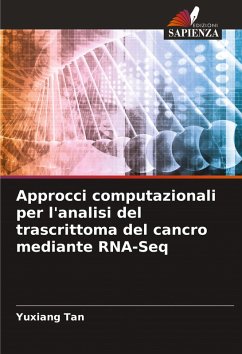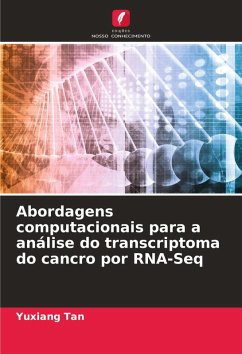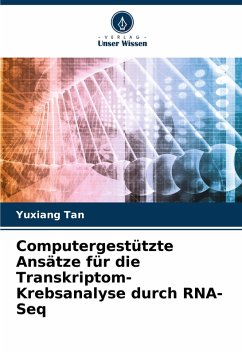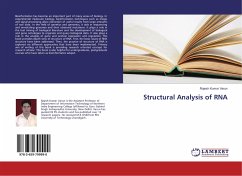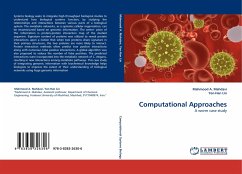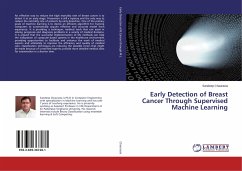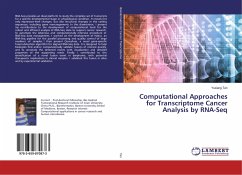
Computational Approaches for Transcriptome Cancer Analysis by RNA-Seq
Versandkostenfrei!
Versandfertig in 6-10 Tagen
36,99 €
inkl. MwSt.

PAYBACK Punkte
18 °P sammeln!
RNA-Seq provides an ideal platform to study the complete set of transcripts for a specific developmental stage or physiological condition. It reveals not only expression-level changes, but also structural changes in the coding sequences, including gene rearrangements. In this dissertation, I present my contributions to the development of computational tools for the robust and efficient analysis of RNA-Seq data to support cancer research. To automate the laborious and computationally intensive procedure of RNA-Seq data management, I worked on the development of Hydra, an RNA-Seq pipeline for th...
RNA-Seq provides an ideal platform to study the complete set of transcripts for a specific developmental stage or physiological condition. It reveals not only expression-level changes, but also structural changes in the coding sequences, including gene rearrangements. In this dissertation, I present my contributions to the development of computational tools for the robust and efficient analysis of RNA-Seq data to support cancer research. To automate the laborious and computationally intensive procedure of RNA-Seq data management, I worked on the development of Hydra, an RNA-Seq pipeline for the parallel processing and quality control of large numbers of samples. I then present QueryFuse, a novel gene-specific fusion-detection algorithm for aligned RNA-Seq data. It is designed to help biologists find and/or computationally validate fusions of interest quickly, and to annotate the detected events with visualization and detailed properties of the supporting reads. Finally, I contributed to the identification of a novel fusion event in lymphoma, with potential therapeutic implications in clinical samples. I validated this fusion in silico and by experimental validation.




